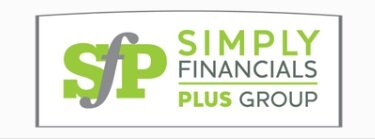If you’re a small business owner, you’ve likely heard the term bank reconciliation tossed around in accounting conversations. Maybe you’ve even done a few yourself—or left them to your bookkeeper and hoped for the best.
But here’s the thing: bank reconciliations aren’t just another accounting task to check off your to-do list. They’re actually one of the most powerful tools you have to keep your finances clean, accurate, and fraud-free. If your books are the story of your business, then your bank reconciliation is like the editor making sure everything adds up.
Let’s break down what bank reconciliations are really trying to tell you—and why you should be paying attention.
What Is a Bank Reconciliation (Really)?
At its core, a bank reconciliation is the process of comparing your business’s internal financial records to your bank statement. The goal? To make sure that what you think you have matches what the bank says you have.
This means checking for:
Missing transactions
Duplicated entries
Bank fees, interest, or errors
Outstanding checks or deposits
Mistakes in data entry
Done correctly, reconciliations help you catch discrepancies early and keep your books up to date.
But beyond just catching errors, a good reconciliation can reveal insights that many business owners miss.
What Your Reconciliation Is Trying to Tell You
#1: Your Bookkeeping Has Gaps (and That’s a Problem)
If you notice discrepancies month after month, or your “uncleared” transactions are piling up, your books might not be as accurate as you think. Bank reconciliations can highlight where entries are missing, misdated, or duplicated—issues that can lead to incorrect financial statements and poor decision-making.
What to do: Review any recurring mismatches with your bookkeeper. Are transactions being categorized correctly? Are bank feeds importing everything? Accuracy here matters.
#2: Your Cash Flow Might Not Be What It Seems
Just because your accounting software says you have $10,000 in the bank doesn't mean it's available. If you haven’t reconciled, your balance might include uncleared checks or outdated deposits.
What to do: Always base your decisions on your reconciled bank balance. This is your true cash position—anything else could be misleading.
#3: There Could Be Fraud or Unauthorized Charges
One of the biggest benefits of monthly bank reconciliations is the ability to catch suspicious activity early. Whether it’s a duplicated charge, a vendor you don’t recognize, or a payment that’s been altered, your bank reconciliation is your first line of defense.
What to do: If you spot a transaction that looks off, investigate immediately. Time is crucial when it comes to fraud or banking errors.
#4: You Might Be Missing Tax-Deductible Expenses
Sometimes, business expenses never make it into your books because they were paid directly from the bank or with a business debit card but not recorded in your accounting software. Reconciliations catch those missing items, which could save you money come tax time.
What to do: Make note of any uncategorized expenses during reconciliation and ensure they’re logged properly and with the right tax-friendly categorization.
#5: Your Financial Reports Can’t Be Trusted Without It
You can’t make sound business decisions on inaccurate data. If your books aren't reconciled regularly, your profit and loss statements, cash flow reports, and even your tax filings could be off.
What to do: Reconcile monthly. At the very least. Make sure your books reflect reality before relying on them to make decisions.
How Often Should You Reconcile?
Ideally: monthly, and always before reviewing financial reports or filing taxes. If you handle a high volume of transactions, you might benefit from weekly reconciliations.
If you’re not sure whether you’re reconciling correctly—or not at all—it’s time to take a closer look. And if you’re working with a bookkeeper, don’t be afraid to ask for a reconciliation report each month. You have every right to understand the numbers behind your business.
Final Thoughts: Reconciliation Is a Conversation
Bank reconciliations aren't just about matching numbers. They're your business’s way of talking back—telling you when something doesn’t line up, when you're spending too much, or when you're missing income.
Listen to what your reconciliation is trying to tell you. It could save you time, money, and a lot of headaches down the line.
Need help making sense of your reconciliations?
SIMPLY Financials PLUS helps small business owners get clear on their numbers so they can focus on growth—not spreadsheets. Contact us to find out how SFP can support your bookkeeping needs.
